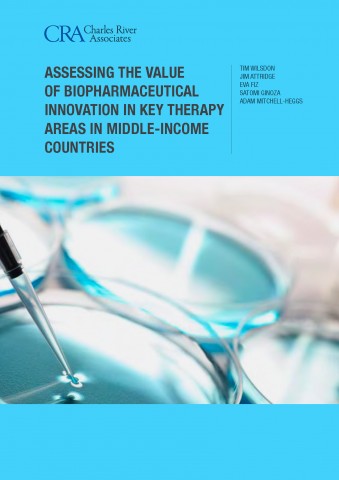
Tackling
Global health challenges
HIV/AIDS
HIV/AIDS
IFPMA members endorse the UN 2030 Agenda for Sustainable Development and the global commitment to accelerate the fight against AIDS, ending the epidemic by 2030.
The research-based biopharmaceutical industry is actively engaged in a number of initiatives to improve screening, timely diagnosis and access to treatment for HIV, awareness raising and education to halt transmission and reduce stigma, and R&D of new medicines and vaccines to combat this disease.



Our industry is developing 44 medicines and vaccines for HIV infection, focusing on improved treatment regimens, more effective therapies, and preventative vaccines. The 44 medicines and vaccines in the development pipeline include:
According to the United Nations Aids Agency (UNAIDS), as of June 2015, 15.8 million people were receiving antiretroviral therapy (ART) worldwide, covering about 40% of people living with HIV. As a result of recent advances in access to antiretroviral drugs (ARVs), HIV-positive people now live longer and healthier lives. New HIV infections have fallen by 35% since 2000. HIV/AIDS presents social as well as medical challenges, when looking to ensure everyone who needs treatment will come forward and properly adhere to ART. Guaranteeing the changes in behavior that can protect people from infection requires continued political commitment and the contribution of stakeholders from a range of different sectors. Programs to scale up HIV prevention, treatment, and care, as well as to provide support to the communities and loved ones of people living with HIV, are necessary to achieve the vision of a world without AIDS. IFPMA members support a variety of initiatives to halt the global HIV/AIDS epidemic. Education and awareness raising to prevent transmission of HIV and reduce stigma against people living with the disease include partnerships such as ViiV Healthcare’s Positive Action, with grassroots action to empower people living with HIV/AIDS, as well as BMS’ Secure the Future, funding projects in sub-Saharan Africa to end transmission of this disease. In cooperation with generics manufacturers or groups such as Medicines Patent Pool, IFPMA companies have licensing agreements for expanded access to treatment in low-income countries. Other partnerships to increase access to care for people with AIDS and others impacted by the disease include AmpliCare, for early diagnosis of babies at risk of HIV, and MSD’s C-MAP, to support the Chinese National HIV/AIDS Prevention and Control Action Plan.
|
Over the past 35 years, HIV/AIDS has gone from being a death sentence to a chronic, manageable disease thanks in large part to advances in biopharmaceutical research that has developed more than 20 antiretroviral therapies.
R&D for new treatments and vaccines will provide long-term solutions to halt the global AIDS epidemic. This is why we are actively involved in research partnerships with governments, NGOs and academia, such as the International AIDS Vaccine Initiative (IAVI), International Partnership for Microbicides (IPM), and HIVACAT: HIV Vaccine Development.
16 million people
were receiving antiretroviral therapy in 2015
Only 54% of people
living with HIV know of their status
Since 2000
new infections have fallen by 35%











